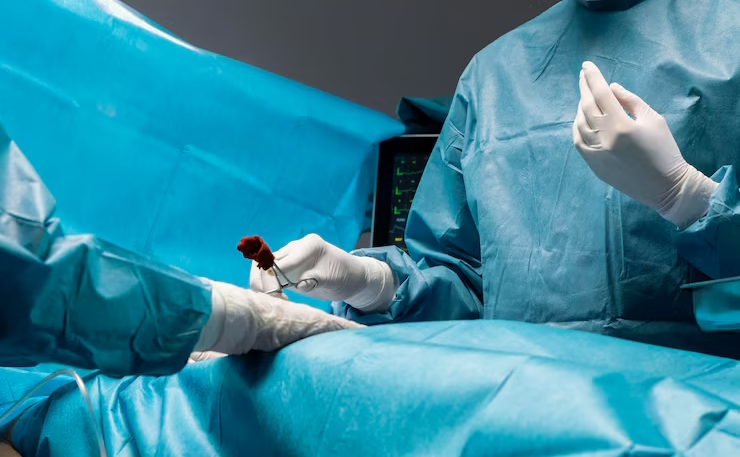
Circumcision Procedure Explained: What Parents Should Know Before Baby Circumcision
For many parents, deciding whether or not to have their baby circumcised is an important and sometimes emotional decision. At Shaafi Hospital Alipur, we understand that parents want accurate information, reassurance, and guidance. This blog is designed to walk you through the circumcision procedure, address common questions, and help you feel confident and prepared.
What Is Circumcision?
Before diving into the procedure, it’s important to first define circumcised. Circumcision is the surgical removal of the foreskin—the fold of skin covering the head of the penis. This is a common practice around the world, especially among Muslim families, where it is considered a religious tradition and part of good hygiene.
Is Circumcision Compulsory in Islam?
One of the most asked questions is, is circumcision compulsory in Islam? While the Quran does not mention circumcision explicitly, it is considered Sunnah (tradition of the Prophet Muhammad, peace be upon him) and is widely practiced in Muslim communities. Scholars generally agree that it is a highly recommended act and a key part of raising a child in the Islamic faith.
Shaafi Hospital Alipur respects religious and cultural beliefs while ensuring that every circumcision procedure is performed safely, hygienically, and with professional care.
When Is the Best Time for Baby Circumcision?
Most parents choose to have the procedure done within the first few days or weeks after birth. However, it can be done at any age. Babies under two months old tend to heal faster and usually experience less discomfort. For older children or adults, the procedure may require more care and monitoring.
At our facility, we perform baby circumcision under sterile conditions using modern techniques to ensure minimal pain and a smooth recovery.
Types of Circumcision Procedures
There are several types of circumcision methods, depending on the baby’s age and the medical tools used. The most common techniques include:
- Plastibell Method – A small plastic ring is placed under the foreskin. The ring falls off naturally in about a week.
- Gomco Clamp – A metal clamp is used to stop bleeding and guide the removal of the foreskin.
- Mogen Clamp – A quick procedure where the foreskin is clamped and trimmed in one step.
Our doctors will choose the best method based on your child’s age, health, and any medical needs.
What Happens During the Circumcision Procedure?
The circumcision procedure typically takes about 10 to 20 minutes. Here’s what you can expect:
- Your baby is placed on a special table and kept warm.
- A local anesthetic is used to reduce pain.
- The foreskin is gently pulled away and removed using the chosen method.
- A protective ointment and bandage are applied.
Parents may be asked to wait outside during the procedure, but you’ll be reunited with your baby immediately after.
Circumcision After Care: What Parents Should Know
Proper circumcision after care is essential for healing. At Shaafi Hospital Alipur, we provide detailed aftercare instructions before you leave. Here are some general guidelines:
- Keep the diaper area clean and dry.
- Apply petroleum jelly or antibiotic ointment as advised.
- Change diapers frequently to prevent infection.
- Avoid tight clothing or pressure on the area.
The healing process usually takes 7 to 10 days. Some redness and slight swelling are normal, but contact your doctor if you notice heavy bleeding, pus, or if your baby has a fever.
Benefits and Risks of Circumcision
Like any medical procedure, circumcision has both pros and cons. Some benefits include:
- Reduced risk of urinary tract infections (UTIs) in the first year
- Lower risk of certain sexually transmitted infections (STIs) later in life
- Easier hygiene and reduced risk of foreskin infections
However, risks—though rare—can include bleeding, infection, or improper healing. Choosing a trusted medical provider reduces these risks significantly.
Why Choose Shaafi Hospital Alipur?
Our hospital combines skilled professionals, modern facilities, and compassionate care. We use sterilized instruments and follow global best practices to ensure each circumcision procedure is safe and comfortable for your child. We also support parents with follow-up care and are available to answer any concerns even after you go home.
We believe informed parents make confident decisions. That’s why we not only perform the procedure but also explain it thoroughly and involve you at every step.
FAQs
Q1: Does my baby need anesthesia for circumcision?
Yes, local anesthesia is used to reduce pain and make the procedure more comfortable.
Q2: How long does it take for a baby to heal after circumcision?
Most babies heal within 7 to 10 days with proper care.
Q3: Is circumcision only done for religious reasons?
No. Some parents choose it for medical or hygiene reasons, while others do it based on cultural beliefs.
Q4: What are signs of infection after circumcision?
Fever, swelling, foul-smelling discharge, or unusual bleeding. Contact your doctor if you notice any of these.
Q5: Can older children be circumcised too?
Yes, though recovery takes longer. We recommend speaking to a doctor about timing and care.
Final Thoughts
The circumcision procedure is a personal choice often rooted in faith, culture, and health concerns. At Shaafi Hospital Alipur, we’re here to support you with safe, professional, and caring service. Whether you are following tradition or choosing circumcision for medical reasons, it’s essential to understand the process and aftercare.
By learning more about baby circumcision, the different types of circumcision, and how to manage circumcision after care, parents can feel confident in their decision and ensure a healthy start for their newborn.
Call to Action (CTA):
Ready to schedule your baby’s circumcision?
Trust the experienced pediatric and surgical team at Shaafi Hospital Alipur for a safe, hygienic, and comfortable circumcision procedure. We’re here to guide you through every step—from consultation to aftercare.
Book your appointment today: shaafihospital.pk/contact
